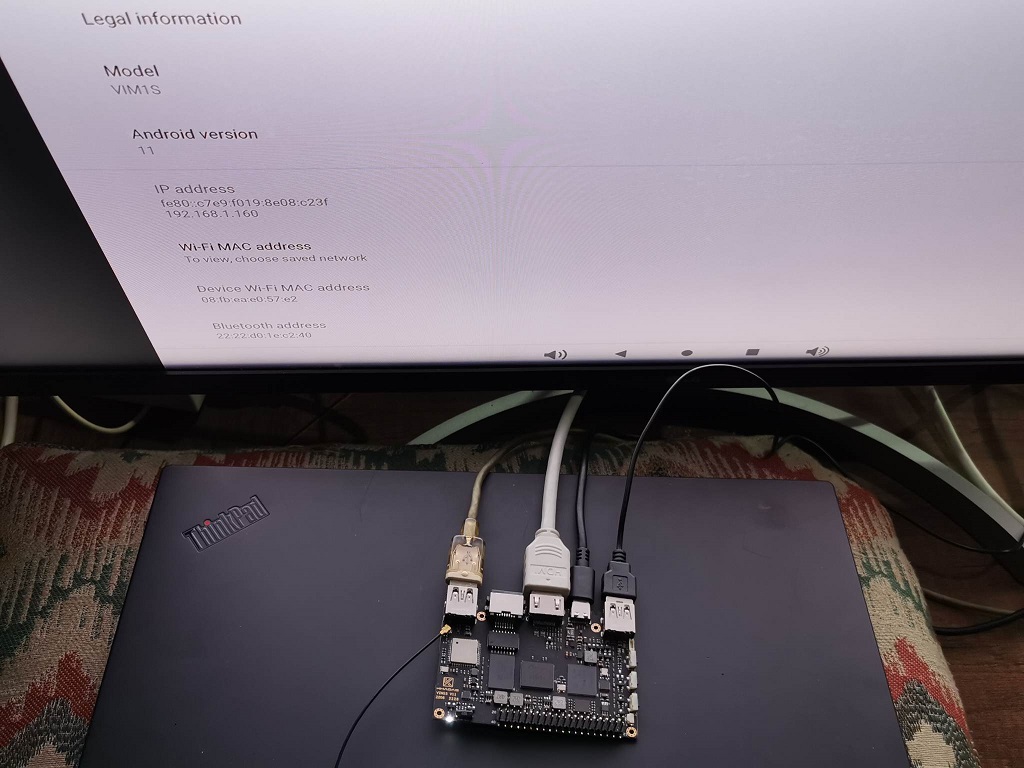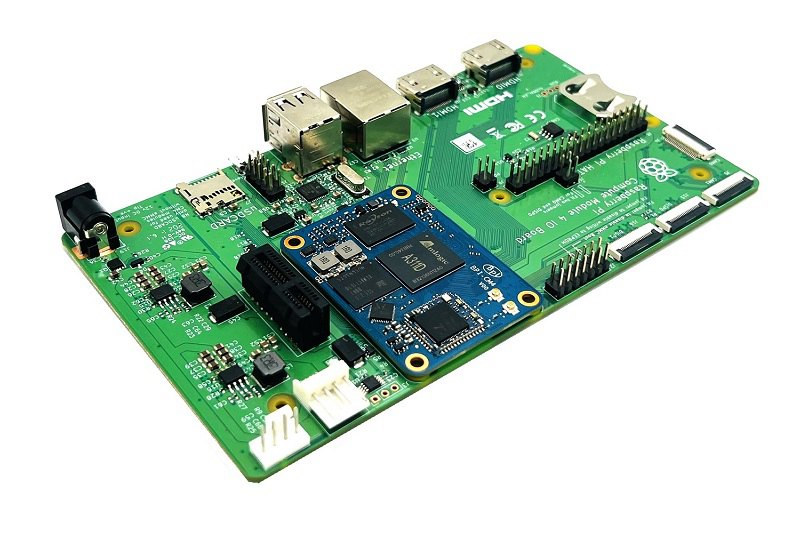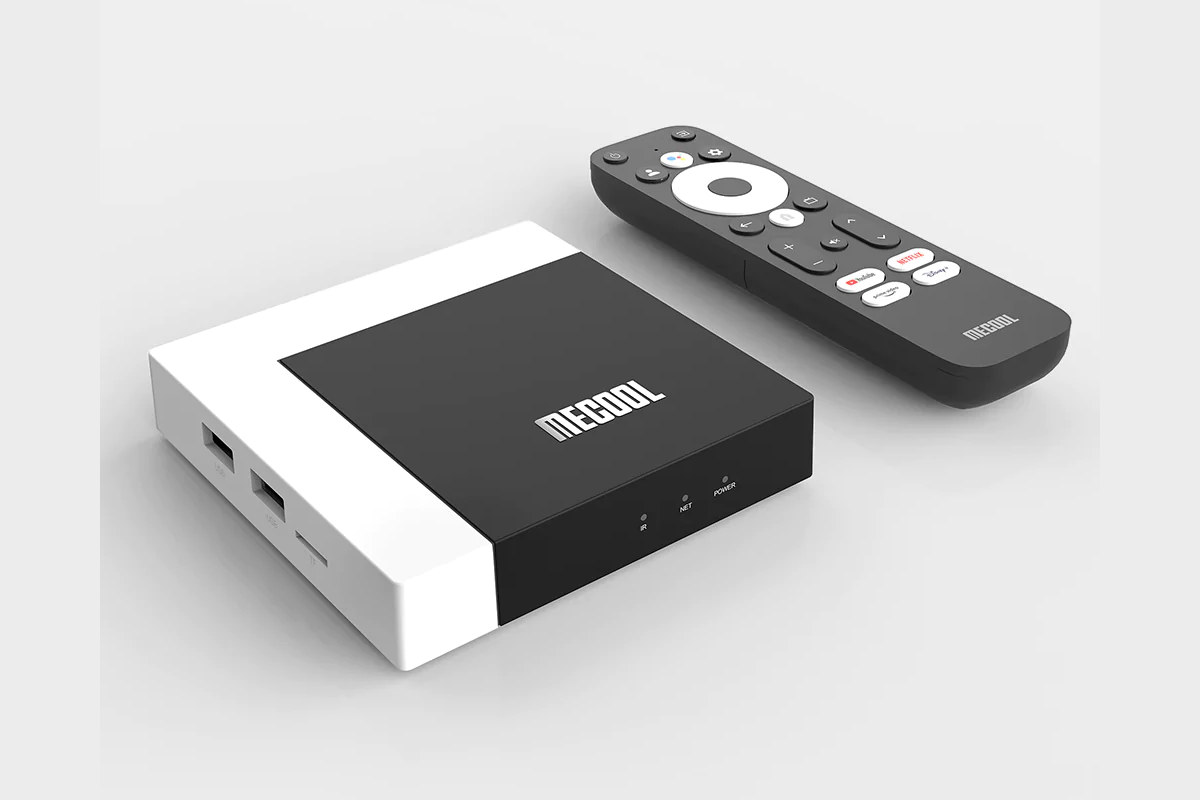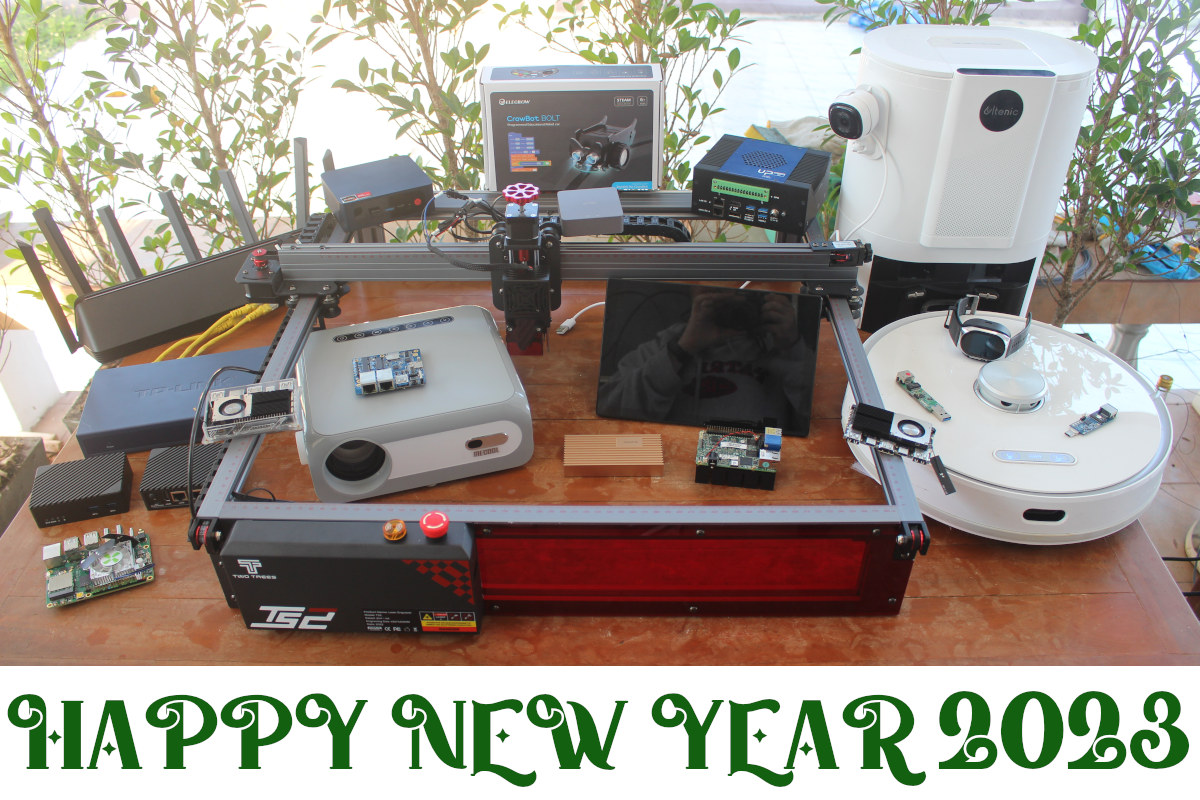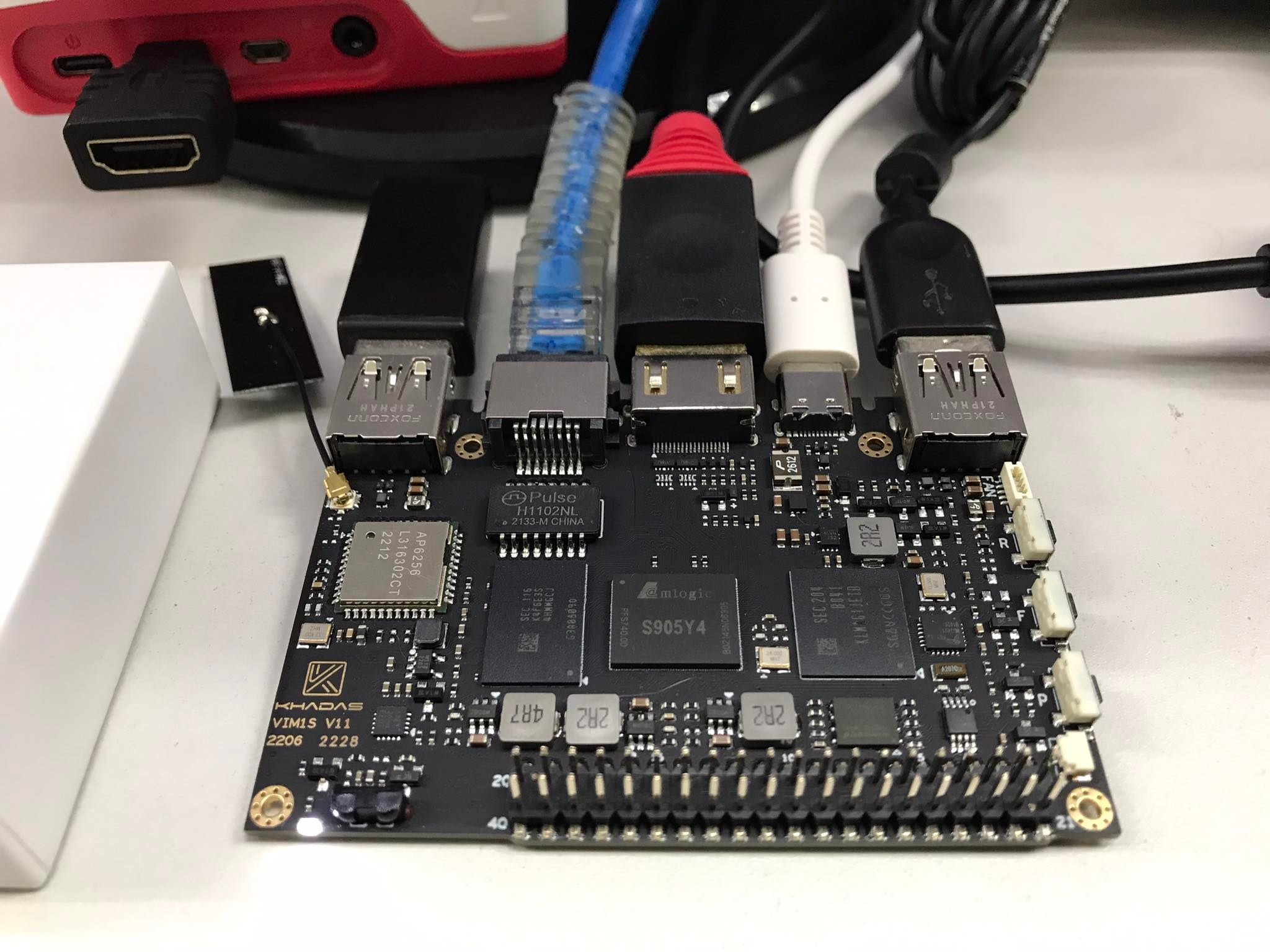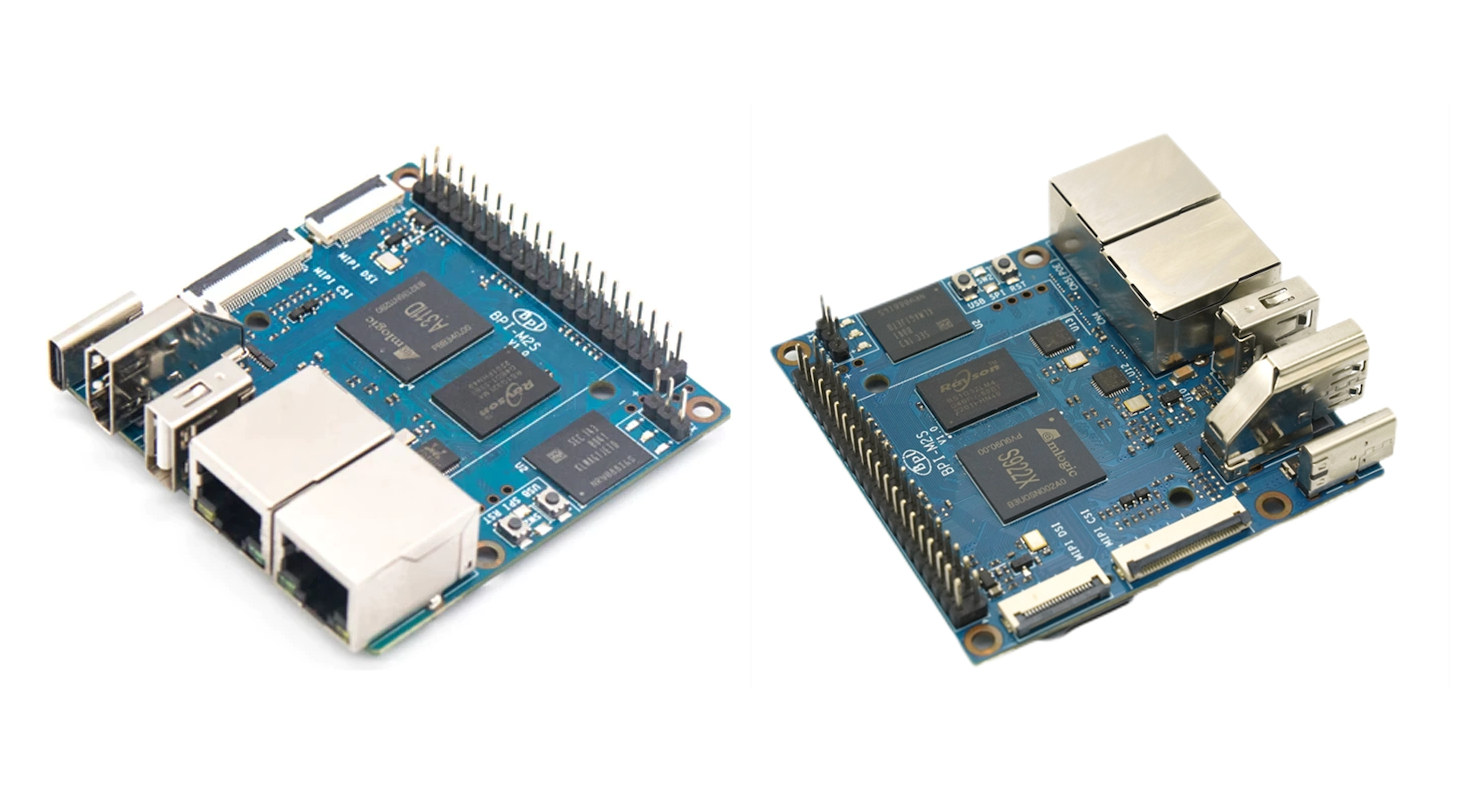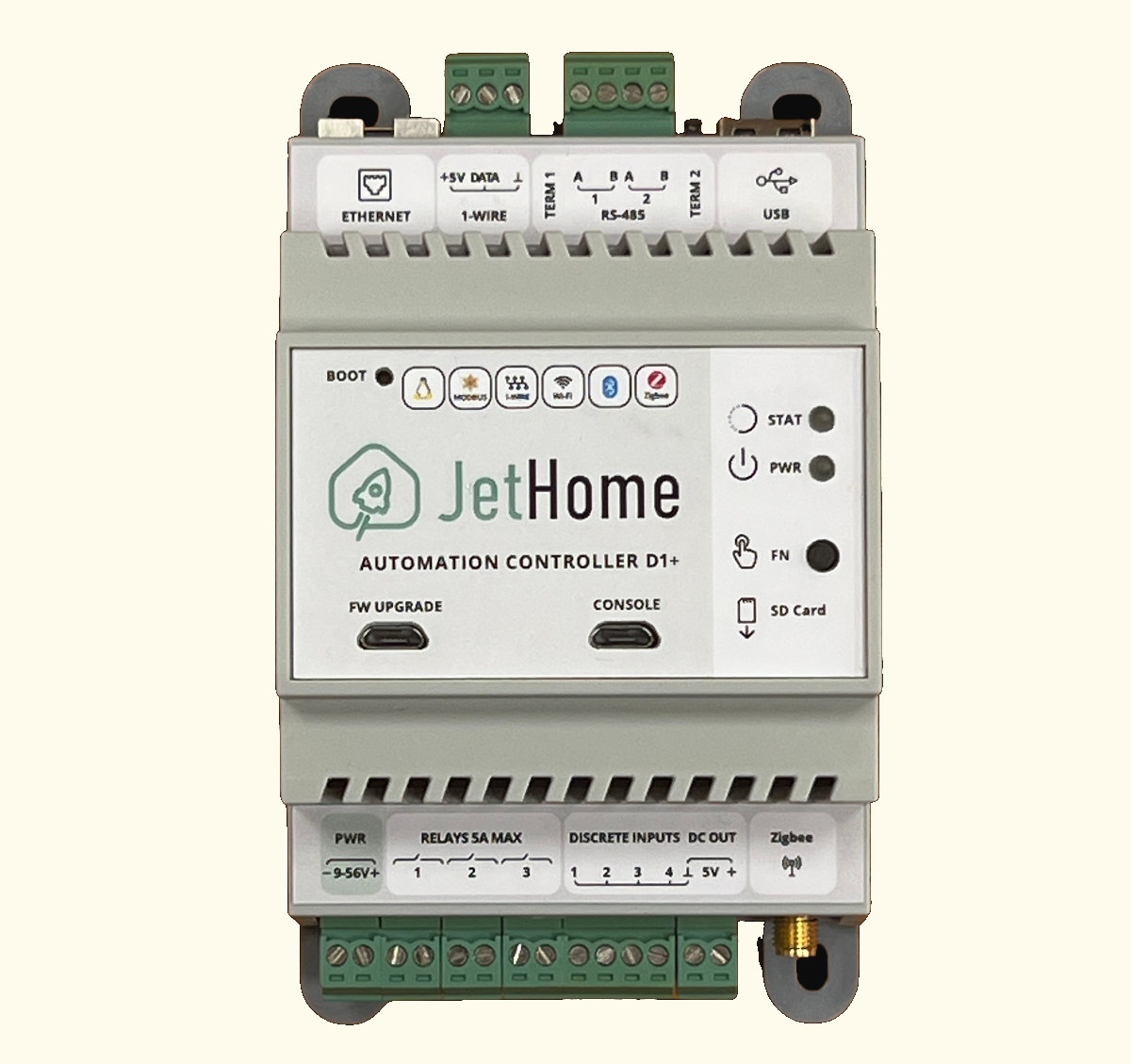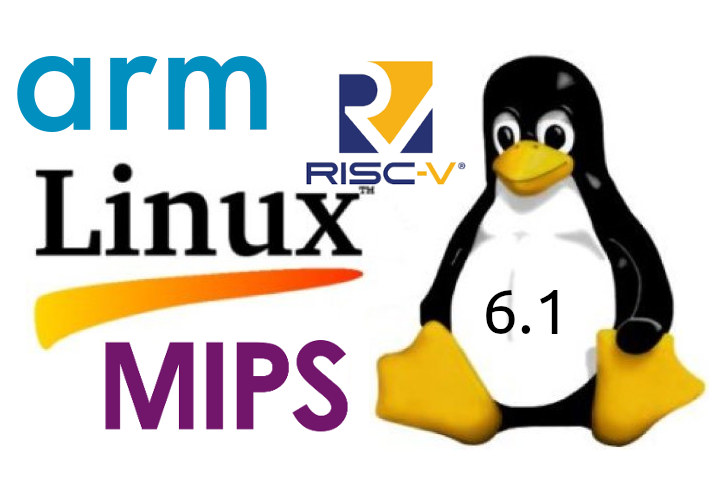We’ve previously tested Ubuntu 22.04 on Khadas VIM1S Amlogic S905Y4 SBC, so we’ll switch to Android 11 in the second part to check out the user experience and benchmark the system under Android. Installing Android 11 on Khadas VIM1S board with OOWOW We’ll basically follow the same procedure as with Ubuntu to flash the Android OS. Press and hold the Function button, press the Reset button, and release the Function button. to enter the OOWOW Wizard, and if an Ethernet cable is not connected, select Network to configure Wi-Fi as the installation process requires downloading an image from Khadas servers. This time, we’ll select the latest Android 11 image namely vim1s-android-11-v221020.raw.img.xz At just 525 MB in size (when compressed), the Android 11 image for Khadas VIM1S board is fairly compact. Installing Android with OOWOW is really easy with the interface downloading and flashing the image to the eMMC flash without […]
Banana Pi BPI-CM4 Amlogic A311D system-on-module launched for $95
Banana Pi BPI-CM4 system-on-module powered by an Amlogic A311D hexa-core Cortex-A73/A53 processor and compatible with the Raspberry Pi CM4 module has now been launched for $95 and up. Banana Pi introduced the Raspberry Pi CM4 compatible module with Amlogic A311D CPU last May with some 3D renders and specifications, and we expected a launch in Q4 2022 or Q1 2023 at the time. The Banana Pi BPI-CM4 is now available together with a carrier board so let’s have another look. Banana Pi BPI-CM4 specifications: SoC – Amlogic A311D hexa-core processor with 4x Arm Cortex-A73 @ 2.0 GHz and 2x Arm Cortex-A53, Arm Mali-G52 MP4 (6EE) GPU, 5 TOPS NPU System Memory – 4GB LPDDR4 RAM Storage – 16GB eMMC flash (up to 128GB) Networking Realtek RTL8211F Gigabit Ethernet PHY on-module Dual-band WiFi 5 up to 867Mbps and Bluetooth 5.2 via Realtek RTL8822CS module and 2x u.FL antenna connectors 2x 100-pin […]
MECOOL KM7 Plus runs Google TV OS on Amlogic S905Y4 SoC
MECOOL KM7 Plus is a TV box powered by an Amlogic S905Y4 quad-core Cortex-A35 processor and running Google TV OS based on Android 11 TV OS, instead of just the more common Android 11 TV OS. Amlogic S905Y4 quad-core Cortex-A35 processor was first unveiled in January 2021 for 4K Android TV dongles with AV1 support, but we had not seen many hardware platforms with the process apart from Khadas VIM1S SBC for which we just published a review with Ubuntu 22.04. MECOOL KM7 PLUS specifications: SoC – Amlogic S905Y4 quad-core Arm Cortex-A35 @ up to 2.0 GHz with Arm Mali-G31 MP2 GPU System Memory – 2 GB LPDDR4-2400 Storage – 16 GB eMMC flash, micro SD slot Video Output HDMI 2.1 up to 4K @ 60 Hz with HDR10+, HRD10, HLG, CEC, HDCP 2.2/2.3 AV port with compositive video (and analog audio) Video Decoder H.265, AV1, VP9, AVS2 up to […]
Year 2022 in review – Top 10 posts and statistics
It’s the last day of the year and the time to look at some of the highlights of 2022, some traffic statistics from CNX Software website, and speculate on what 2023 may bring us. The semiconductors shortage continued in 2022, but things are looking brighter in 2023 with the full reopening of the world mixed with forecasts of difficult economic times that should keep the demand/supply equation in check. On the Arm processor front the biggest news of the year, at least in this corner of the Internet, was the launch of the Rockchip RK3588 octa-core Cortex-A76/A55 processor together with interesting single board computers that we’ll discuss below. Announced last year, the Amlogic A311D2 octa-core Cortex-A73/A53 was finally made available in a few SBC’s, and we finally got some news about the Amlogic S928X Cortex-A76/A55 SoC showcased in 8K TV boxes, but we have yet to see it in action. […]
Khadas VIM1S review – Ubuntu 22.04 tested on an Amlogic S905Y4 SBC
In this review of Khadas VIM1S SBC, we’ll install Ubuntu 22.04, and report our experience testing the performance such as memory speed and eMMC flash performance, and 3D graphics capabilities. Installing Ubuntu 22.04 on Khadas VIM1S Just like Khadas VIM4 and Edge2, the Khadas VIM1S SBC ships with the OOWOW firmware that allows easy installation of operating systems by downloading the images, and flashing them directly to the eMMC flash. You need just to connect a monitor and a USB keyboard and have an Internet connection through either LAN or Wi-Fi. Let’s start by installing Ubuntu 22.04 on Khadas VIM1S together. If no OS is installed, OOWOW will boot automatically, but if there’s already another OS installed, you can press and hold the Function button, press the Reset button, and release the Function button. After a few seconds, the OOWOW Wizard as shown in the picture below should show up. […]
$96+ Banana Pi BPI-M2S Amlogic A311D/S922X SBC offers dual GbE, optional PoE and WiFi 5
The Banana Pi PPI-M2S is a single board computer (SBC) powered by either Amlogic A311D or S922X processor with 4GB RAM, 16GB eMMC flash, HDMI 2.1 and MIPI DSI display interfaces, one MIPI CSI camera connector, two Gigabit Ethernet ports with one PoE capable, as well as optional WiFi 5 & Bluetooth support. When we first covered the Banana Pi BPI-M2S over a year ago, all we had were some 3D renders of the board and some preliminary specifications. The company has now manufactured the board, provided some documentation, and started to take orders for the board on Aliexpress for $95.79 or $100 depending on whether Amlogic S922X or A311D is selected. Banana Pi BPI-M2S specifications: SoC – Amlogic A311D or S922X hexa-core processor with 4x Arm Cortex-A73 cores @ 2.21 GHz, 2x Arm Cortex-A53 cores @ 1.8 GHz, Arm Mali-G52 MP4 (6EE) GPU with OpenGL ES 3.2, Vulkan 1.0 […]
JetHome JetHub D1+ automation controller runs Armbian with mainline Linux, supports Home Assistant
Earlier this year, we noted the addition of the JetHome JetHub D1 Linux-based home automation controller to mainline Linux 5.16, and the JetHome JetHub D1p (D1+) was just added to Linux 6.1 with some improvements. Still based on the Amlogic A113x processor, the JetHub D1+ gets more memory and storage with 2GB DDR4 RAM and 32GB eMMC flash, a MicroSD card slot, a new RTL8822CS wireless module, and a micro USB port to easily access the console and/or flash firmware to the device. JetHub D1+ specifications: SoC – Amlogic A113x quad-core Cortex A53 processor @ up to 1.5 GHz System Memory – 2GB DDR4 Storage – 32GB eMMC flash, MicroSD slot Connectivity 10/100M Ethernet RJ45 port Dual-band WiFi 5 up to 867 Mbps and Bluetooth 4.2/5.0 (RTL8822CS) Texas Instruments CC2652P1 Zigbee 3.0 module USB 1x USB 2.0 Type-A host port for peripherals 2x Micro USB ports one console access and […]
Linux 6.1 LTS release – Main changes, Arm, RISC-V and MIPS architectures
Linus Torvalds announced the release of Linux 6.1, likely to be an LTS kernel, last Sunday: So here we are, a week late, but last week was nice and slow, and I’m much happier about the state of 6.1 than I was a couple of weeks ago when things didn’t seem to be slowing down. Of course, that means that now we have the merge window from hell, just before the holidays, with me having some pre-holiday travel coming up too. So while delaying things for a week was the right thing to do, it does make the timing for the 6.2 merge window awkward. That said, I’m happy to report that people seem to have taken that to heart, and I already have two dozen pull requests pending for tomorrow in my inbox. And hopefully I’ll get another batch overnight, so that I can try to really get as […]


